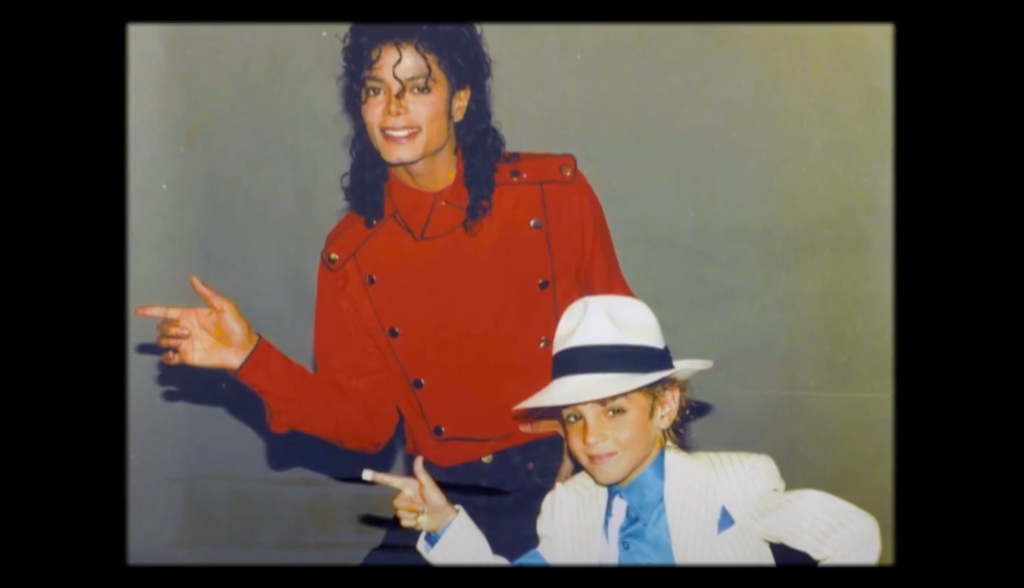Behind the Scenes: Why HBO Abandoned the Michael Jackson Sequel
In the world of documentary filmmaking, few subjects are as polarizing as Michael Jackson. Following the release of “Leaving Neverland” in 2019, which featured harrowing accounts from two men who alleged they were sexually abused by the pop icon as children, discussions regarding Jackson’s legacy intensified. HBO’s anticipated sequel to this impactful documentary was expected to delve deeper into the complexities surrounding Jackson’s life and the allegations against him. However, in a surprising turn of events, HBO decided to abandon the project. In an exclusive interview, director Dan Reed sheds light on the intricacies that led to this decision, revealing the challenges faced in the turbulent landscape of documentary filmmaking.
The Decision to Abandon the Sequel
Dan Reed, known for his compelling storytelling and dedication to uncovering the truth, was set to helm the sequel. However, he shared that the decision to pull the plug was not taken lightly. “We had a lot of discussions, and ultimately, the climate surrounding Michael Jackson’s narrative became increasingly complicated,” Reed explained. “HBO had to consider not just the content but also the potential backlash and the ramifications of revisiting such sensitive material.”
One of the core reasons HBO abandoned the sequel was the backlash from Jackson’s estate and his fervent supporters. Following the release of “Leaving Neverland,” the estate launched an aggressive campaign against the film, including lawsuits and public statements dismissing the allegations as false. This created a charged atmosphere that made the sequel a contentious project.
The Turbulent Landscape of Documentary Filmmaking
Reed’s insights into the documentary landscape reveal a broader issue: the challenges filmmakers face when addressing sensitive and controversial subjects. The rise of social media has amplified voices on all sides, making it difficult to strike a balance between storytelling and public perception. “Documentaries are supposed to provoke thought and discussion,” Reed stated. “But with the current state of affairs, it’s often hard to predict how audiences will react.”
- Increased Scrutiny: Documentaries are now under the microscope, where every decision is scrutinized by the public.
- Rapid Information Cycle: The speed at which information spreads can quickly change the narrative, complicating the storytelling process.
- Polarized Opinions: Issues surrounding celebrities, particularly those with controversial histories, can lead to divided audiences, making it challenging to produce content that resonates universally.
The complexities surrounding Michael Jackson’s story illustrate these challenges perfectly. As one of the most famous figures in music history, Jackson’s legacy is intertwined with both groundbreaking artistry and serious allegations. Reed emphasized, “The challenge lies in how to present a narrative that is both fair and truthful while being aware of the emotional weight it carries for many.”
Insights on the Future of Michael Jackson Documentaries
Despite the setback with HBO, the interest in Michael Jackson’s life and legacy remains strong. Lionsgate is currently working on a biopic that aims to capture his essence and contributions to music. Reed believes that this could offer a different perspective. “Biopics often take creative liberties, which might allow for a more nuanced portrayal of Jackson, rather than focusing solely on the allegations,” he noted.
However, as with any project concerning Jackson, the filmmakers will tread carefully. The biopic is expected to explore his artistry, his impact on the music industry, and the controversies surrounding his life, all while attempting to honor his legacy.
The Role of Storytelling in Controversial Subjects
Documentary storytelling, particularly in cases like that of Michael Jackson, raises several ethical questions. Reed argues that filmmakers must navigate these waters with sensitivity and integrity. “It’s essential to give a voice to those who feel they’ve been silenced, but it’s equally important to ensure that all perspectives are considered,” he stated.
This balance is critical for documentaries, especially when they deal with allegations of abuse. Reed’s approach in “Leaving Neverland” was to provide a platform for the survivors, allowing them to share their experiences authentically. However, the backlash from Jackson’s estate highlighted how challenging it can be to present a one-sided story in a world that demands multiple viewpoints.
Looking Ahead: The Future of Documentaries on Controversial Figures
As the documentary landscape continues to evolve, filmmakers will need to adapt to changing audience dynamics and cultural sensitivities. The abandonment of HBO’s sequel may signal a shift in how networks approach controversial subjects, with a greater emphasis on assessing public sentiment and potential fallout.
- Increased Collaboration: Filmmakers may seek to collaborate more with legal teams and public relations experts to mitigate backlash.
- Focus on Community Input: Engaging with communities affected by the subject matter can provide valuable insights and foster a more inclusive narrative.
- Diverse Perspectives: Documentaries may increasingly aim to present a range of viewpoints to provide a holistic view of the subject.
Conclusion
The decision by HBO to abandon the Michael Jackson sequel underscores the complexities faced by documentary filmmakers today. As Dan Reed articulates, the challenges of addressing sensitive subjects in a polarized world are significant. However, the continued interest in Jackson’s life suggests that opportunities remain for storytellers willing to navigate these waters thoughtfully and sensitively. As Lionsgate prepares to introduce a new biopic, the hope is that it will not only honor Michael Jackson’s musical legacy but also engage with the myriad facets of his life, sparking meaningful conversations about artistry, legacy, and accountability.
Ultimately, the world of documentary filmmaking is one of resilience and adaptation. As filmmakers like Reed continue to push boundaries, audiences can expect stories that challenge perceptions while honoring the truth—a delicate dance that remains ever vital in our quest for understanding.
See more CNET Live

